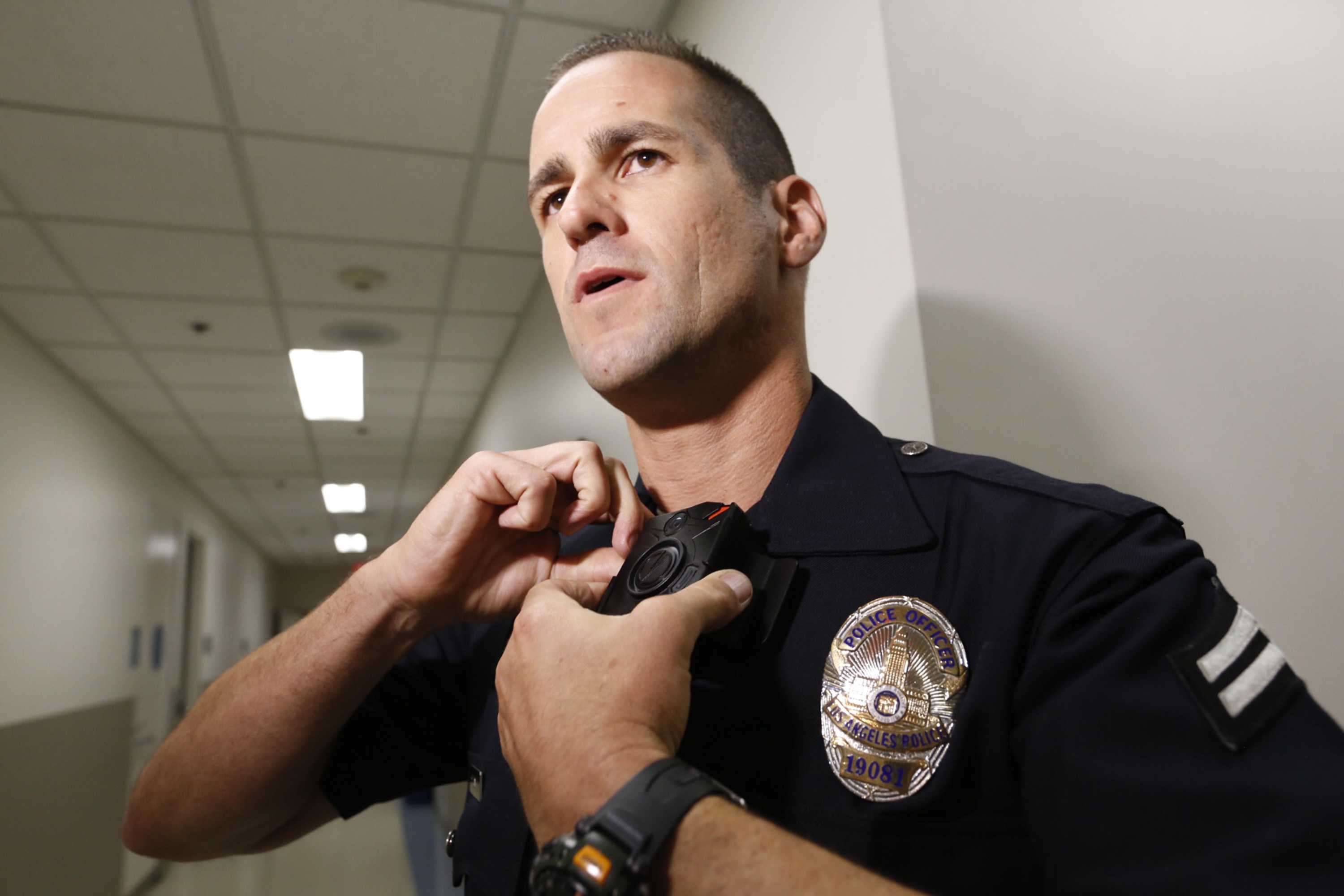Police departments across the country may soon have the money to film their every move if a new grant-providing bill passes through to become legislation.
California Rep. Janice Hahn and Illinois Rep. Bill Foster co-introduced a bill on Friday that will provide federal funding to law enforcement agencies to implement worn body cameras.
The passing of HR. 3544 would provide $100 million each year to law enforcement for body-worn cameras, according to Hahn’s website. The statement also noted that preferential treatment would be given to state, local and tribal law enforcement agencies that comply with policies described in HR. 3544.
According to a press release on Hahn’s website, the bill would enable law enforcement to purchase body cameras without cutting funds from other department programs, like community outreach efforts.
Under the legislation, University Police at California State University, Long Beach could apply to the grant program and be approved in order to receive funding to buy body cameras.
Christopher Schivley, captain of the CSULB University Police, said that he agrees with the idea of body cameras but also recognizes that some flaws may have to be smoothed out before they can be implemented.
“Yeah of course we’ll use the cameras,” Schivley said. “We’ve been using audio recorders for about 7 years. But like any new technology there are things you have to consider, such as data storage. Storing audio files is one thing, but storing video files will take a large amount of servers. We also have to think about the retention of these files.”
Under HR. 3544, law enforcement departments must have comprehensive policies developed alongside criminal justice experts and community members that discuss procedures related to usage rights and the effect on community-police interactions, among other things.
The agency or department would also have to be well-educated on the best ways to use the body cameras as deemed by the Department of Justice, according to Hahn’s website
Hahn’s website noted that HR. 3544 is “the House version of a Senate bill” originally introduced by Senators Cory Booker and Tim Scott. The counterpart Senate bill was introduced in July.
According to S. 1897, the city or jurisdiction of the law enforcement agency applying for body cameras would have to have “a violent crime rate at or above the national average as determined by the Bureau of Justice Statistics.”
Long Beach Police Department spokeswoman Nancy Pratts said that they are working on introducing their own body camera program separate from the requirements of S. 1987 and HR. 3544 by the end of the year regardless of the previous mentioned stipulations.
Schivley noted that there are both pros and cons to requiring body cameras for police officers.
“A pro is we get to see things from a new perspective,” Schively said. “But that’s also the con. One perspective may be true, but it doesn’t necessarily show the entire truth… If we are going to use cameras they need to show enough perspective for the truth to be shown.”
According to Hahn’s website, recipients of the federal grant under HR. 3544 will be required to match 25 percent of the funds provided.
The agencies and departments qualified for the federal funding would also be required to submit data on the use of the body cameras to the Department of Justice in order to study the effectiveness of body cameras, the press release stated.
Freshman business major Jonathan Lovelady said that having cameras will protect both officers and community members in the event that an interaction goes to trial.
“It’ll be pure fact on those videos,” Lovelady said. “It’ll make police brutality a more real thing.”
Elizabeth Odendahl, the press secretary and legislative assistant for Hahn, said that both HR. 3544 and S. 1897 were created in response to cases of police brutality.
“Congresswoman Hahn believes that footage of recent police brutality incidents have been critical to bringing the truth to light and holding those responsible accountable,” Odendahl said via email.
There have been in 868 people killed by police in the U.S. so far in 2015, according to data from Killed by Police, a data collection site that tracks police-related deaths reported by various news websites.
Estevan Barajas, a freshman psychology major at CSULB, said that he doesn’t believe this legislation will completely fix the issue.
“Over the past two years, I’ve heard the words ‘stop resisting’ the most when it comes to police videos,” Barajas said. “How… hard is it to do that? Comply and no one gets hurt. And if you’re innocent, why even worry? You and other witnesses know the truth.”
A congressional committee is set to review S. 1987 before sending it on to the House of Representatives and the Senate. Both HR. 3544 and S. 1987 must be passed by the House and Senate in identical forms before they can be introduced to the president.




